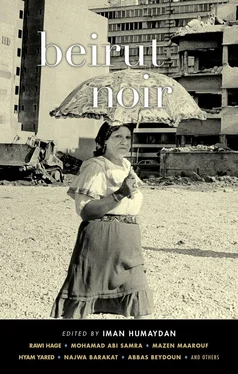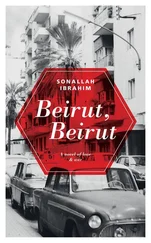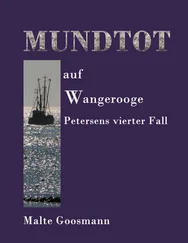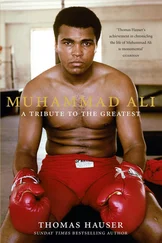Muhammad Abi Samra - Beirut Noir
Здесь есть возможность читать онлайн «Muhammad Abi Samra - Beirut Noir» весь текст электронной книги совершенно бесплатно (целиком полную версию без сокращений). В некоторых случаях можно слушать аудио, скачать через торрент в формате fb2 и присутствует краткое содержание. Город: New York, Год выпуска: 2015, ISBN: 2015, Издательство: Akashic Books, Жанр: Детектив, на английском языке. Описание произведения, (предисловие) а так же отзывы посетителей доступны на портале библиотеки ЛибКат.
- Название:Beirut Noir
- Автор:
- Издательство:Akashic Books
- Жанр:
- Год:2015
- Город:New York
- ISBN:978-1-61775-344-2
- Рейтинг книги:3 / 5. Голосов: 1
-
Избранное:Добавить в избранное
- Отзывы:
-
Ваша оценка:
- 60
- 1
- 2
- 3
- 4
- 5
Beirut Noir: краткое содержание, описание и аннотация
Предлагаем к чтению аннотацию, описание, краткое содержание или предисловие (зависит от того, что написал сам автор книги «Beirut Noir»). Если вы не нашли необходимую информацию о книге — напишите в комментариях, мы постараемся отыскать её.
Most of the writers in this volume are still living in Beirut, so this is an important contribution to Middle East literature — not the “outsider’s perspective” that often characterizes contemporary literature set in the region.
Beirut Noir — читать онлайн бесплатно полную книгу (весь текст) целиком
Ниже представлен текст книги, разбитый по страницам. Система сохранения места последней прочитанной страницы, позволяет с удобством читать онлайн бесплатно книгу «Beirut Noir», без необходимости каждый раз заново искать на чём Вы остановились. Поставьте закладку, и сможете в любой момент перейти на страницу, на которой закончили чтение.
Интервал:
Закладка:
“You don’t recognize me,” the hunchbacked man said in a low, embarrassed-sounding voice. She examined him, baffled; his features seemed to have changed, slowly coming into focus, though he maintained his grip on her arm while he kept on talking.
“I’m Mahmoud, I used to deliver pizza to you from the place at the end of the street when you lived here.”
Why didn’t she recognize him before? Perhaps because she saw him at Abu Wadih’s in another context than the one she was used to. Or perhaps she’d erased him from her memory with all of the other memories she had of this place, in this house where she’d lived with Khalid. It was strange how her journey of escape had ended here of all places. Was it her legs that brought her here unconsciously? Or did he force her to take this particular road? She couldn’t understand anything anymore. She, like everything, was in a totally surreal dream and the best solution would to be to surrender to the logic of the dream until it ended and she woke up...
“Of course I recognize you, but let go of my arm!” She tried to free herself from his grip, but his strong arms held her in place. She didn’t do anything to resist. She merely tried to get some control over her rapid breathing. She didn’t want him to know how afraid she was. She thought that if he smelled fear he would become more ferocious. She read somewhere that dogs could identify criminals by the scent of fear on them and therefore would attack them. From that time on she had a dog phobia. Whenever she saw a dog on the road she imagined it would swoop down on her, not because she was a criminal but because it would smell the fear and guilt oozing from her skin. But she could usually control herself, so she went ahead calmly, thinking that she would trick the dog and divert its nose from the passing gust of fear. Yet this didn’t seem to be of any use with Mahmoud. She screamed without even being aware she was screaming: “Leave me alone, let me go! Are you listening? Leave me alone!”
She noticed that his left eye was twitching slowly and his mouth was twisted downward as if he were trying to pick up a smile that kept falling off.
Suddenly a rattle-like voice emerged from within him: “I love you.” He said this looking at her as if he were waiting for her to say, And I love you too. It seemed clear that for him what was happening was not assault, as she was experiencing it, but an act of true love.
She forced herself to speak as calmly as she could: “Mahmoud, I have to go because my family is waiting for me at home. Let me go and I’ll see you tomorrow. I’ll give you my number. But right now I really have to go.”
He didn’t seem to have heard her and was finishing the conversation by himself. He seemed totally absent but he wouldn’t let her go. Instead he pulled her violently toward him and grabbed her neck from behind. “I know I don’t have money and I’m not educated but I’m gonna make a lot of money and buy a car and get my teeth fixed too — they’re gonna look nice, like the guys you are with. And I’ll order you pizza too but I won’t let you open the door to anyone — I’m very jealous.”
She was quiet for a moment and then something happened that she didn’t expect. He let her go, turned around, and moved away from her, shouting while peering upward as though he were speaking with someone in the sky: “Mahmoud the Monster, Mahmoud the Monster! Listen to me, the Monster is speaking to you, listen to the Monster!”
She remained frozen in place, completely stunned, and watched him move farther and farther away. She didn’t budge until she saw him turn toward his motorbike. Then she started running again, even though her knees were hurting. She heard the roar of the motorbike again and ran even faster, though after a while she realized that the sound was still the same distance away from her, it wasn’t getting any nearer. She stopped and turned to see if he was following her. She saw him in the distance driving his motorbike toward a streetlight and then crashing into it. He reversed and then once again aimed at the light and crashed into it...
After walking for a quarter of an hour down the dark street alone, she finally got back to the Corniche. Dawn was breaking. She bent over the rail and stared at the empty boat, still in its usual place in the sea. She noticed that the sounds of the bombing continued, despite the cease-fire the Israelis had agreed to the day before. No doubt they’ll exploit every second before sunrise to bomb whatever they can. They probably hope that this dawn will last forever, while the people who live in the southern suburbs are praying for the sun to rise again.
Her mind was fixated on a dawn from another time, stuck in her throat — like the empty boat, bobbing in the waves slowly — making it hard for her to breathe.
Originally written in Arabic.
Under the Tree of Melancholy
by Najwa Barakat
Gemmayzeh
I am Mr. Kaaaaaaaa. And I am no one.
I lost my organs, one after the other, and I didn’t do so voluntarily or because of disease or an explosion or an accident of any kind. Now that I’ve atrophied, been pruned and abbreviated into only one of my senses, I wonder regretfully if organ donation wouldn’t have been the perfect choice for someone like me. If I had done it, my organs wouldn’t have gone to waste. Had they all been intact and working together regularly, they would have enjoyed the flattery that the old Armenian doctor would have inundated me with, when I would have brought my organs to him. He would have come to receive them joyfully, repeating in a kind of coughing fit, which changed the Arabic letters ha and ayn to kha in his throat: “ Akhlan akhlan wa sakhlan , greetings to the orkhans of Mr. K.”
Nothing is left in my whole body except an eye, which I feel is a hole. I didn’t say “my” eye, since nothing should be granted to me when I don’t exist anymore. What is incomplete has no identity. What has no identity becomes common property, belonging to a genus and not to an individual. It becomes an unperson. Just like nouns when an article isn’t there to aid them. I lost my own article. It happened one day. It really takes a huge effort to concentrate and remember the date. Perhaps it wasn’t a day, but a divergent, motley mix of units of time that are impossible to measure. All I know is that after the language of people had shut me out, I started speaking a language that I called the language of ayn (meaning both letter and eye ).
I expanded a tiny hole and glimpsed through it heads and voices, buildings and roads. As I was peering into it, all I had to do was grab hold of its edges, breathe deeply, then make one push upward to emerge with a giant, complete body, wearing a hat and coat and carrying suitcases and umbrellas.
Now I open the eye wide — more than an eye is able to be open — because I know that my continuity is dependent on it, and that when I close it, I will die and everything will disappear. I keep it open, alert, not so I can stay alive but so I can look after the tree of melancholy — to see it sending its seeds out onto the ground and growing with the passing seasons. I testify and I narrate; the language of ayn will disappear with me and won’t be the language of anyone else after me. A faithful partner will depart, untouched by the tongue of any other man. We will die together like an animal whose species was made extinct, after it threw itself into the abyss of nothingness with joy and indifference. Two, three things at the most, I narrate. I utter this world’s breath and I stop. A flicker. A fleck. Then nothing. Thanks, farewell, peace.
I settle down in whiteness, conscious that I am shaped like a cloud that will fade away later. I sit in doubtful blackness, with the eye closed. My body that no longer exists remains tattooed in me, like life on a dead face that departed without it realizing. I succeed in summoning my organs from the tissue of my garbled memory and they rise, knotted up, intermittently and uncoordinated. Or they come together, incomplete, in a chaos lacking logic or meaning. I sometimes feel myself a cubical board, broken into pieces, scattered around, having no beginning or clear destination. I must gather myself together cell by cell to be heavy enough that I can rise up again, a seemingly complete person, with my particularities and my weaknesses, even if disabled, diseased, or afflicted by the scourge.
Читать дальшеИнтервал:
Закладка:
Похожие книги на «Beirut Noir»
Представляем Вашему вниманию похожие книги на «Beirut Noir» списком для выбора. Мы отобрали схожую по названию и смыслу литературу в надежде предоставить читателям больше вариантов отыскать новые, интересные, ещё непрочитанные произведения.
Обсуждение, отзывы о книге «Beirut Noir» и просто собственные мнения читателей. Оставьте ваши комментарии, напишите, что Вы думаете о произведении, его смысле или главных героях. Укажите что конкретно понравилось, а что нет, и почему Вы так считаете.












